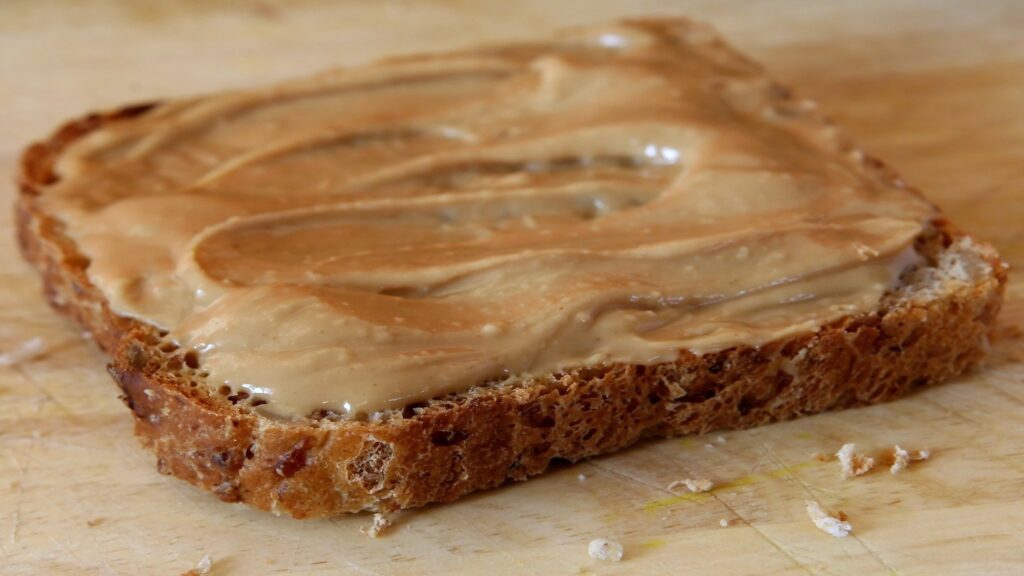
Changes to food allergy guidelines has led to a 16 per cent decrease in peanut allergy among infants, according to new study.
The research, led by the Murdoch Children’s Research Institute (MCRI) and to be presented at the American Academy of Allergy, Asthma & Immunology Virtual Annual Meeting this Sunday, also found a significant increase in parents introducing peanut into their babies’ diet since the guideline changes.
Introducing peanut early in a child’s life has been shown to prevent peanut allergy during randomised controlled trials. But MCRI PhD candidate and study lead author Victoria Soriano said this research was the first to test the approach in homes and to analyse what impact the guideline changes have had on peanut allergies.
International infant feeding guidelines changed in 2016 to recommend introduction of peanut and other allergenic foods before 12 months.
“In the 1990s some guidelines recommended avoiding allergenic foods until age 1-3 years and avoidance of these foods in infancy became widespread,” Ms Soriano said.
“By 2008, this advice started to be removed based on increasing evidence that delaying allergenic foods was associated with an increased food allergy risk. However, evidence was still insufficient for specific recommendations for what age these foods should be introduced.”
The Melbourne study compared data from the 1,933 infants enrolled in the EarlyNuts study in 2018-2019 to the 5,276 infants recruited in the HealthNuts study across 2007-2011.
The research found the peanut allergy prevalence in 2018-2019 was 2.6 per cent compared to 3.1 per cent in 2007-2011, which amounted to a 16 per cent decrease after accounting for migration and population changes.
In 2018-2019, infants who did not consume peanut until 12 months or later, 4.8 per cent were allergic. Severe reactions to introducing peanut early were uncommon, the data showed.
Ms Soriano said despite initial concern that parents may not follow the advice to introduce peanut early there was a high uptake.
Peanut consumption by 12 months increased from 28 per cent to 89 per cent in the 10 years to 2019, which may have halted the rise in peanut allergy, the study found.
Melbourne mum Megan Chappel began feeding her son Stellan, 10 months, peanut product from five months of age. Stellan is enrolled in MCRI’s Vitality allergy trial.
“We try to incorporate peanut products into his diet as much as we can,” she said. “It’s reassuring to see peanut allergy has not only deceased but that many parents are following the new guidelines.”
MCRI’s Dr Jennifer Koplin said despite the decrease in peanut allergy, the prevalence overall continued to be high.
Australia has the highest reported rates of childhood food allergy in the world, with about one in 10 infants and one in 20 children up to five years of age being allergic.
“The safety of early peanut introduction at home is of significant interest to parents as well as health professionals around the world,” Dr Koplin said. “More research must be done to look closer at these trends to help us understand how well early introduction to peanut works to prevent peanut allergies in real-life situations.”
The Vitality trial is recruiting Melbourne infants aged six to 12 weeks testing whether taking a vitamin D supplement over the first year of life can help prevent food allergies. To find out more about MCRI’s allergy trials visit the Centre for Food and Allergy Research website.
 Hotter Is Better For Removing Allergens In Laundry
Hotter Is Better For Removing Allergens In Laundry Reese’s Peanut Butter Cups Go Organic
Reese’s Peanut Butter Cups Go Organic Popular Cold And Cough Treatment May Create Respiratory Distress In Young Children
Popular Cold And Cough Treatment May Create Respiratory Distress In Young Children Drinking milk while breastfeeding may reduce the child’s food allergy risk
Drinking milk while breastfeeding may reduce the child’s food allergy risk